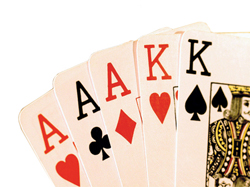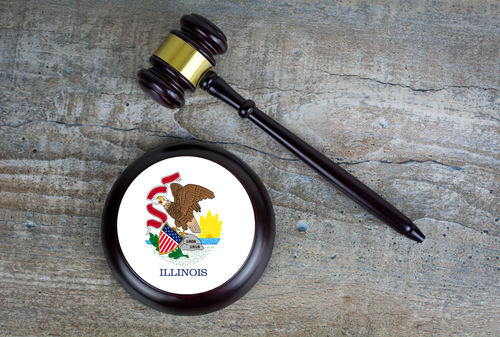Texas Book 'em

Photo by Photodisc/Getty Images
If you’ve got a regular poker night, you might want to consult a lawyer before your next game.
Earlier this year a South Carolina judge upheld the 2006 arrest of five poker buddies for playing an illegal game of chance. In the town of Mount Pleasant (population 63,000) the card players were arrested for violating a state law that bans games with cards or dice—which the state attorney general has interpreted as meaning games that rely more on chance than skill.
Those arrests weren’t an aberration.
Some 38 other states have similar laws barring games of chance. The laws have been used to justify raids on poker games in California, Colorado and Virginia, according to John Pappas, executive director of the Poker Players Alliance, a national advocacy group in Washington, D.C.
The PPA says it has started a litigation support network to advocate for poker as a game of skill.
That South Carolina judge agreed, but it didn’t matter. In February, municipal judge Larry Duffy ruled that “Texas Hold ’em” is a game of skill, but upheld the conviction of the five players caught in the 2006 raid. The case is being appealed.
Pappas says the PPA doesn’t advocate unregulated poker—if someone’s taking a commission from players, the state has a right to require a license. But a line has to be drawn at friendly, informal games like that in South Carolina, he says.
The South Carolina poker pals “were as shocked as anyone that cops with guns a-blazing knocked down their door,” says Pappas, exaggerating ever so slightly.



